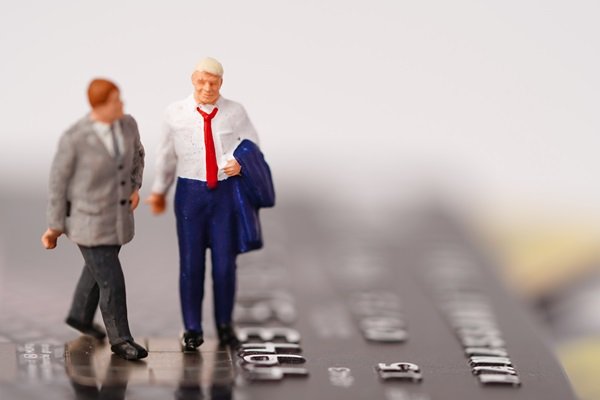
Corporate Ethics & Culture Face New Tests in Trump’s America
Published on January 10th, 2025
Introduction
Corporate ethics and culture have always played a significant role in shaping the success and integrity of organizations. In the Trump era, marked by profound political, social, and economic shifts, these principles are under new and heightened scrutiny. Companies now face the challenge of navigating ethical dilemmas while balancing public perception and profitability. As businesses adapt to this environment, the way they handle these challenges will significantly impact their long-term success.
1. The Evolving Ethical Landscape
The Trump administration introduced sweeping changes in policies, tax laws, and regulations that have reshaped the corporate world. These changes, including rollbacks of environmental protections and shifts in labor policies, placed organizations in difficult ethical positions. Companies are now tasked with deciding whether to follow new policies that may conflict with their established values or to maintain their original ethical commitments at the potential cost of financial penalties. This evolving landscape demands a reassessment of corporate priorities and the reinforcement of internal codes of ethics.
2. Employee Activism and Corporate Responsibility
Employee activism has surged in recent years, driven by a growing awareness of social issues such as racial equality, gender equity, and climate change. Employees are no longer content to remain silent, and many now expect their employers to take clear stances on these issues. Companies that fail to respond risk alienating their workforce and damaging employee morale. Furthermore, organizations must demonstrate authenticity in their initiatives, as superficial efforts are often criticized. Aligning corporate responsibility with genuine, impactful action is becoming a critical factor for fostering a motivated and engaged workforce.
3. The Role of Leadership in Ethical Decision-Making
Leadership is at the heart of ethical decision-making in organizations. In the Trump era, corporate leaders faced unprecedented challenges in addressing divisive social and political issues. Many leaders found themselves walking a tightrope, striving to satisfy diverse stakeholder demands while staying true to their personal and organizational values. The key to navigating these challenges lies in fostering an environment of openness, where leaders prioritize transparency, engage in meaningful dialogue, and empower teams to contribute to ethical practices. Ethical leadership requires not only taking a stance but also ensuring that decisions align with long-term organizational integrity.
4. Public Perception and Brand Reputation
In today’s connected world, public perception plays a significant role in shaping a company’s success. Social media and online platforms amplify consumer opinions, making it essential for businesses to maintain a positive and ethical public image. Companies that align their practices with consumer expectations often enjoy enhanced loyalty and trust. On the other hand, organizations that fail to address ethical controversies can face widespread backlash, boycotts, and reputational damage. Striking a balance between profit-driven decisions and maintaining ethical credibility is a critical challenge for modern corporations.
5. Challenges in Global Operations
For multinational corporations, the ethical challenges of the Trump era are compounded by the complexity of operating in diverse international markets. Companies must navigate conflicting regulatory requirements, cultural expectations, and varying societal norms. For example, environmental standards and labor laws differ widely across countries, presenting companies with the dilemma of adhering to local policies versus upholding their global ethical commitments. To thrive in this context, organizations need to adopt a nuanced approach that respects regional differences while staying true to their overarching ethical principles.
Conclusion
Corporate ethics and culture are being tested in unprecedented ways in the Trump era. Companies must adopt a proactive and adaptive approach to meet these challenges. By fostering ethical leadership, prioritizing transparency, and aligning corporate values with societal expectations, organizations can thrive while maintaining integrity and trust. The way businesses respond to these tests will not only shape their immediate reputation but also define their legacy in an era marked by significant change.
